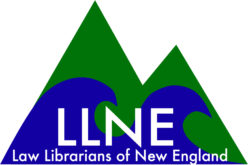Treatises
Treatises are detailed explanations of a particular area of law written by legal scholars or experienced practitioners. They can be single- or multi-volume. Many areas of law have a go-to treatise for those looking to get up to speed on that topic (e.g. Nimmer on Copyright or Williston on Contracts).
Encyclopedias and Practice Series
A legal encyclopedia is a multi-volume resource containing (in alphabetical order) general discussions on areas of law. There are national and state legal encyclopedias. National encyclopedias, including Corpus Juris Secundum and American Jurisprudence 2d, discuss areas governed by federal and state law, and contain citations to statutes and cases from all fifty states in addition to the relevant federal laws. Many states outside of New England have their own legal encyclopedias as well.
Practice series, or practice guides, provide jurisdiction-specific “how-to’s” for both litigation and transactional law. These are often the best secondary source to use when practicing law in a particular jurisdiction because they are an in-depth treatment written by an experienced practitioner. Practice series in New England include Connecticut Practice, Massachusetts Practice and New Hampshire Practice.
Legal Forms
Forms are often included in practice guides, but there are also entire series devoted to forms, including American Jurisprudence Legal Forms and West’s Legal Forms. There are also titles that are devoted to specialized forms, such as Entertainment Industry Contracts: Negotiating and Drafting Guide. Litigation forms can also be found on court websites.
*Adapted from David Bachman, Steve Donweber, Ellen Minot Richardson, Jennifer Robble & Stefanie Weigmann, Researching the Law (2013).
Legal Forms
Legal forms refer to sample leases, contracts, agreements, forms, applications and other legal documents that are frequently used in legal practice. Instead of redrafting those documents from scratch each time, attorneys typically rely on pre-existing legal forms found in commercial or public sources in print or online. As a type of secondary sources, legal forms are not sources of law themselves. However, good legal forms, usually found in commercial databases or print volumes, often provide analysis of the underlying law and footnotes to relevant cases.
Though advice from an attorney is always encouraged, public patrons may avail themselves of the convenience and benefits of legal forms depending on the circumstances. Legal forms may help you with such tasks as drafting your own will, preparing commercial or residential leases, choosing the right form for your business. And in the event of a divorce, legal forms might offer guidance on how to draft a separation agreement.
You will find plenty of Internet sites offering free legal forms if you run a simple Google search for “free legal forms”. However, many of those free internet forms are of dubious origin and the quality remains to be tested. There is usually no way to verify the currency and validity of those free legal forms found on the Internet. Though Googling and the free Internet is not a bad place to start, if possible, patrons should seek the help of a librarian with knowledge of legal information—-such a librarian is more adept at directing patrons to the right legal forms for a particular situation or a particular jurisdiction. Patrons may also search the catalog of any public law library with terms including “legal form” and the name of jurisdiction or practice area for relevant titles (e.g., “legal form” and “real estate”, “legal form” and “Maine”, etc.). If you need assistance with legal forms, please don’t hesitate to contact a member of Legal Link.
